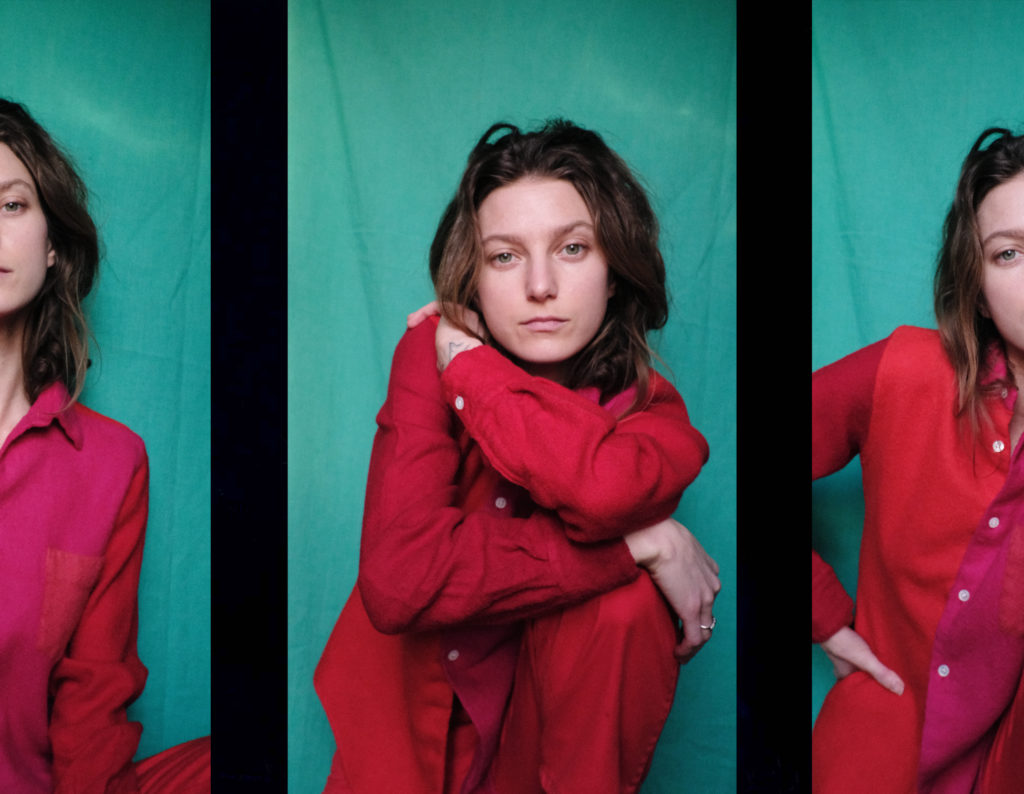Carson McHone’s dad was a local beer distributor in Austin and knew every bartender on the circuit. In turn, that networking helped her land gigs at honky tonks and dives across the city, until she, with only a handful of biographical songs and no record deal. McHone wound up opening for Shakey Graves in 2015, because they both emerged from the same scene and he took a chance on her “timeless country voice.” Her LP from the same year, Carousel, became an ethereal portrait of Central Texas, something akin to the voices of her fellow underground, regional raconteurs. It was hailed as a country record, but McHone has long wrestled with calling herself a country act, instead of existing somewhere in-between it and indie rock.
“I felt like the people around me, who were embodying honky tonk music, would hear me [play] and say it’s not country,” McHone, joyously sequestered in her Toronto apartment, tells SPIN over Zoom. “But then, I would be on a bill with an indie band and people would come up to me after the show and say they didn’t even know they liked country music.”
Despite growing up around a subculture of musicians doing their best to mimic cowboy tropes, McHone was more interested in how songs become timeless and manifest in succeeding generations. “I grew up listening to a lot of Celtic music,” she continues. “I’ve always loved melodies that feel ancient but so, so urgent and still relevant.” As a result, McHone’s been able to assimilate folk, grunge, blues, and yacht rock sounds into kinetic, breathable compositions.
Four years after Carousel, she’s blossomed far beyond the genres she’s never fit into. Her Merge Records debut, Still Life, is a sweeping collection of technicolor and crooning balladry, a country vibrato that toes the line between alternative and Americana. The record’s orchestral arrangements, supplied by Ontario bulwark Daniel Romano, turn McHone’s songwriting three-dimensional. The project germinated at the beginning of the pandemic, when she and Romano retreated to Toronto and used the country’s lockdown protocols to hone their compositional chemistry and generate a palette of arresting, streamlined lyricism. “It’s the first record I’ve made where it’s an intimate thing between just two people,” McHone says.
[embedded content][embedded content]
The night before our video call, McHone says she watched Cool Hand Luke for the first time. She quickly picked up on the parallels between the infamous “failure to communicate” line and her own, “let’s find a new language to use so we’re not confused,” in “Fingernail Moon.”
“That’s all we’re trying to do, communicate, and the language that we use is so personal and it’s all based on our past experience, the things that we collect,” she says. “You have to, first, be in touch with yourself to know what you want to say, but then there’s this element of mystery about how people are going to interpret it.”
Taking linguistic inspiration from books like A Moveable Feast and The Heart is a Lonely Hunter, McHone is a vivid storyteller. Her lyrics have always been solemn, straight-to-the-point yet spacious; emotionally sprawling and inviting, even in her barnstorming, DIY days. During the zenith of “End of the World,” she asks the listener: “Tell me what do you know of restraint?” It’s a question McHone’s been workshopping the answer to because she writes such acute, centered language – but it’s her interactions with liminal space, and her articulation of tension, that establishes such good resonance. She, beautifully, gives us her life story, but empathetically leaves room for us to glean our own stories from it, too. “As an artist, the catalyst for involving yourself in the creative process is very personal, but you do have to take into account your audience,” McHone adds. “You want to be understood, but you also want to allow people to arrive themselves.”

McHone is a student of transparency and the joys of expression. It’s why she’s so open about Still Life being a record of maturity, as well as a definition of what makes a eulogy for survival. She populates her work with age-old tropes of country catalogs, stories of sabotage, falling in love, reflection, and vulnerability, but gives them a daring, contemporary makeover. Whether or not McHone properly identifies as a country singer, she embodies the toughness and ingenuity the genre’s long implored and commands the stage in accordance, no matter who she performs alongside.
“Gary Clark Jr. and I played a sold-out show in Minneapolis,” McHone says. “I was an opening act for someone whose music doesn’t sound like mine, and, when you’re playing for people who have no idea who you are, being able to play something that silences a room of strangers is very powerful.”

Leave a comment